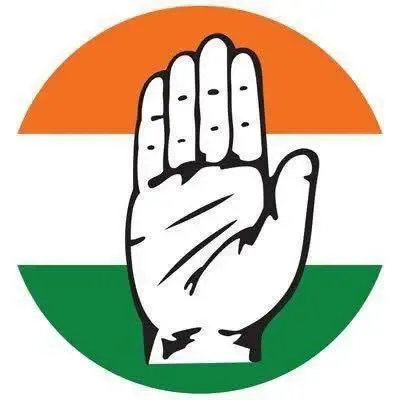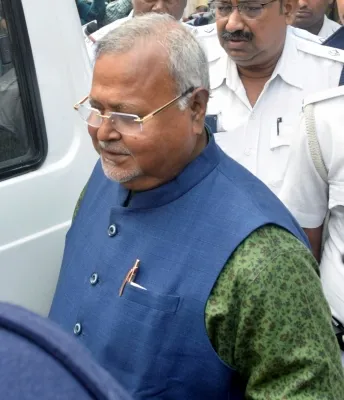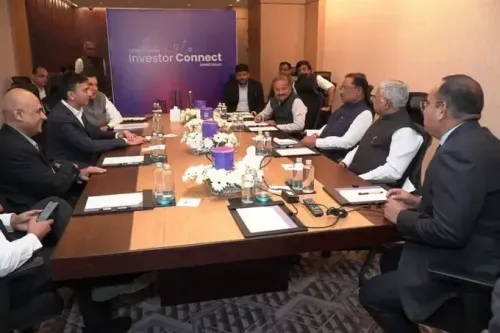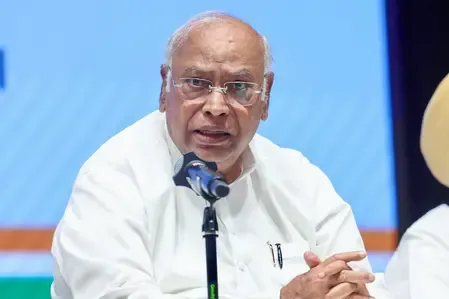RSS: Do We Support Issues Over Parties?
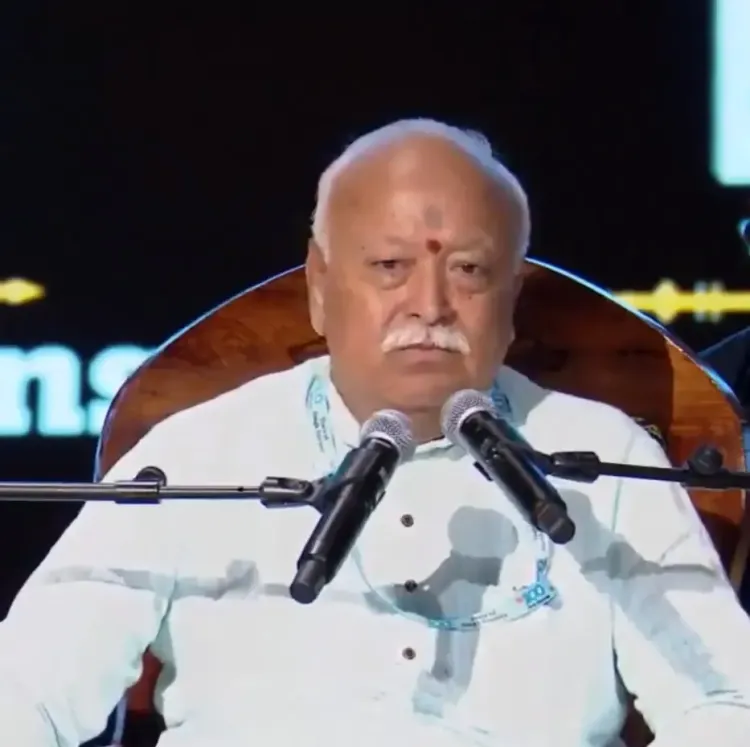
Synopsis
Key Takeaways
- RSS supports national policies, not parties.
- Historical context of the Bhagwa Dhwaj.
- Mohan Bhagwat highlights the importance of unity.
- RSS's nonpartisan stance encourages collaboration.
- Criticism has fueled RSS's popularity.
Bengaluru, Nov 9 (NationPress) The Rashtriya Swayamsevak Sangh (RSS) has clarified its position, asserting that it does not endorse any specific individual or political party, but rather upholds policies that benefit the nation's interests.
During a two-day lecture series held in Bengaluru, commemorating the centenary of the RSS, Sarsanghchalak Mohan Bhagwat articulated this stance.
When questioned about the organization's non-support for political parties, Bhagwat stated, “We do not support any political party. Our focus is on uniting society, as politics is inherently divisive.”
“We are advocates for policies. As a social entity, our influence will be directed towards supporting the right policies, rather than individuals or parties. For instance, we advocated for a Ram Mandir in Ayodhya. Our volunteers stood by those who championed this initiative,” he explained.
“Consequently, the BJP was involved during that time. However, had the Congress backed the Ram Mandir movement, our volunteers would have aligned with that party as well,” Bhagwat elaborated.
He noted that during those protests, elections occurred, often involving alliances rather than single-party contests. “When the BJP endorsed alliance candidates, our volunteers supported those who favored the cause. We maintain no bias towards any specific party,” he emphasized.
“No party belongs to us, yet all parties belong to us — as they are Bharatiya (Indian) parties. We endorse Rashtra Neeti (national policy), not Rajneeti (party politics). We make this clear. We have a vision for the nation’s direction and support anyone who strives toward that goal,” Bhagwat asserted.
He stressed that there is no intention of aligning with any political party's slogan. “Many party members resonate with the Sangh's ideology. Our aim is to unite society, including potential volunteers from opposing factions. Our sole objective is the nation’s advancement,” Bhagwat stated.
In response to queries about the RSS's use of the Bhagwa Dhwaj (saffron flag) instead of the national flag, and the animosity some harbor towards the Sangh, Bhagwat explained, “The RSS was founded in 1925, and we needed a symbol for our organization. Dr. Hedgewar emphasized that the Sangh is ours. When a family member marries, we don’t solicit donations but take loans. We do not beg for our work; the Sangh is our responsibility. Contributions should be made selflessly, representing dedication and devotion. Thus, we offer Guru Dakshina (offerings). This requires a Guru, but no individual can fulfill that role indefinitely,” he stated.
“Every sinner has a past, and every saint has a future. Circumstances shift. Therefore, a lasting symbol of our rich culture and Hinduness is essential — hence the Bhagwa Dhwaj. It has always represented our guiding principle,” he continued.
Bhagwat further noted, “The Bhagwa Dhwaj was designated as our Guru. The national flag was adopted in 1937. The flag committee had unanimously recommended the traditional saffron flag as India’s national flag, but Mahatma Gandhi suggested a Tricolour flag, with saffron at the top.”
“Since its inception, the Sangh has honored, respected, and safeguarded the Tiranga Dhwaj (national flag). It was first raised in 1933 at a Congress session in Maharashtra. Since the flag's establishment, we have defended it,” he mentioned.
“When the court later ruled that private organizations could hoist the national flag, we began doing so on January 26 and August 15 at all Shakhas. There is no conflict between the Bhagwa and the Tiranga. Every Communist party has a red flag, while the Congress party features a Tricolour with a symbol. We have the Bhagwa — and we respect it. That’s the reality,” Bhagwat clarified.
Responding to perceived media bias against the RSS, Bhagwat remarked, “Why should we address every question? Not all inquiries warrant a response. Some individuals are inclined to question the Sangh — and that’s acceptable. We prioritize our work over responding to every query.”
“Over the years, such criticism has only bolstered our popularity. We encourage further inquiries. Our efforts are sincere and aimed at the country’s welfare. However, some will continue to criticize us, despite knowing the truth,” he concluded.

